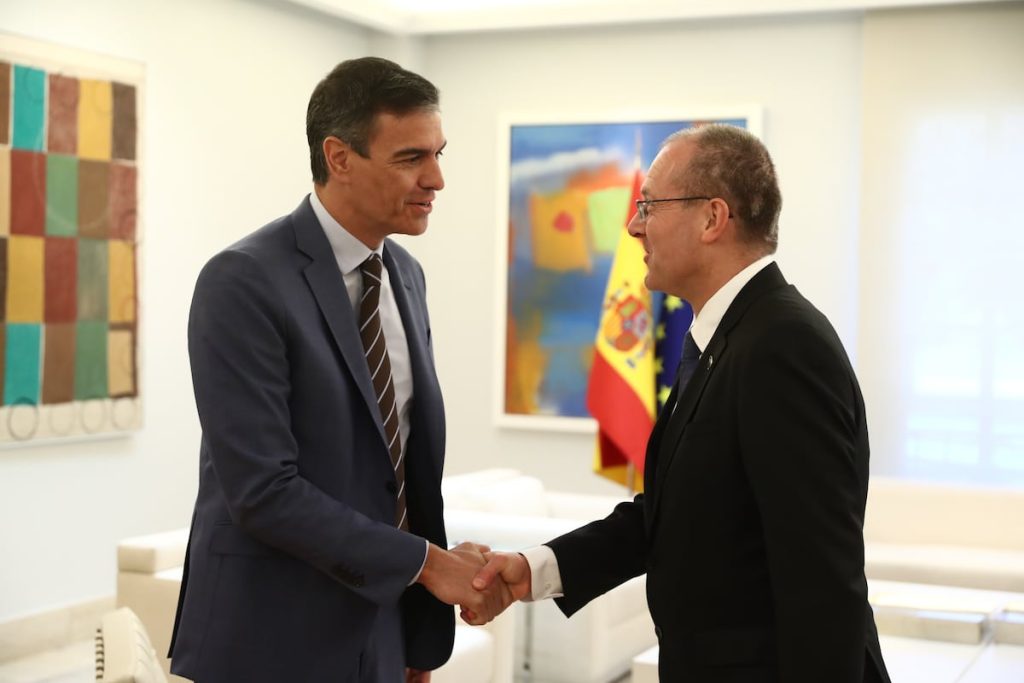Alberto Núñez Feijóo, leader of the People’s Party (PP), has revealed a proposal in his program for the upcoming European elections. He suggests that migrants who want to be part of the EU should commit to and respect the foundational values of Europe. With less than a week to go until the election, the PP has not yet made its program public. Feijóo highlighted immigration as a campaign message, contrasting with the platform of Vox, a far-right party. In a recent speech in Tenerife, Feijóo linked illegal immigration to crime and squatting, a strategy he previously used during the Catalan elections.
Feijóo emphasized the importance of upholding European values and the prosperity of the EU. He stated that the borders of the EU are not just geographical, but also involve democratic models, ways of life, and the welfare state. Feijóo mentioned that the EU’s migration pact, which his party signed, was a positive step but they want to go further. He proposed that individuals who want to join the EU must commit to and respect the foundational values of Europe, such as gender equality, as a requirement for working in Europe. However, he did not provide further details on the proposal, aligning with far-right ideologies.
In Catalonia, Vox targeted women and their perceived insecurity caused by Islam. Feijóo criticized Vox, stating that their campaign seemed to be designed by the ruling Socialist Party. He suggested that those who wanted to challenge the Socialist Party should support the PP instead. Feijóo referenced an incident in Sevilla, where the budget proposed by the PP was rejected by both the ultraright and the Socialists. Despite the opposition, Feijóo emphasized the need to strengthen the PP in order to have a significant impact on national politics.
Feijóo’s proposal on migrant integration into the EU reflects a conservative approach to immigration policy. By linking immigration with European values and emphasizing the need for respect and commitment, Feijóo is aligning himself with right-wing ideologies that prioritize cultural assimilation. His rhetoric on migration echoes similar sentiments expressed by other conservative parties across Europe, particularly in response to the rise of far-right movements. This stance reflects a broader ideological shift towards a more stringent immigration policy within the European political landscape.
Feijóo’s emphasis on the importance of preserving Europe’s prosperity and solidarity within the EU highlights his commitment to maintaining the status quo and strengthening the union. By advocating for a common understanding and adherence to European values, Feijóo positions himself as a defender of traditional European principles. However, his alignment with far-right rhetoric and his emphasis on nationalism and cultural identity raise concerns about the inclusivity and diversity within his vision for Europe. As the European elections approach, Feijóo’s proposal will likely spark debates and discussions about the future direction of the EU and the role of immigration in European society.














